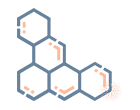Metabolic Precision Panel
Diagnostic test based on NGS of multiple genes associated to a disease, condition, or phenotype.


Glycogen Storage Diseases (GSD) are a group of inherited disorders that result from errors of glycogen metabolism caused by mutations in genes that code for enzymes involved in glycogen synthesis and degradation.
Methylmalonic Aciduria/Acidemia (MMA) is an autosomal recessive disorder of the amino acid metabolism with a defect localized in the conversion of methylmalonyl-coenzyme A (CoA) into succinyl-CoA.
Organic Acidemias/Acidurias (Organic Acid Disorders, OADs) are an important group of inherited metabolic disorders that share a defect in intermediary metabolic pathways of carbohydrate, amino acids and fatty acid oxidation.
Congenital Disorders of Glycosylation (CDG) are a group of rapidly expanding metabolic disorders that arise due to abnormal protein or lipid glycosylation. There are difficulties trying to diagnose them because they broadly affect many organs and functions, demonstrating a clinical heterogeneity.
Lysosomal Storage Diseases (LSD) are a group of dozens of inherited disorders that result from the accumulation of undigested or partially processed macromolecules inside organelles called lysosomes.
Glycine encephalopathy, also known as autosomal recessive nonketotic hyperglycinemia is caused by mutations in the genes encoding components of the glycine cleavage system. It is caused by mutations in the glycine transporter 1 (GLYT1).
Leigh syndrome (subacute necrotizing encephalomyelopathy) is a severe neurological disorder that generally presents in infancy or early childhood, although it can appear during late childhood and even adulthood.
The Urea Cycle is the metabolic pathway that transforms nitrogen from peripheral (muscle) and enteral sources (protein ingestion) into urea that is water soluble and can be excreted.
Fatty Acid Oxidation Disorders (FAODs) are inborn errors of metabolism resulting in failure of mitochondrial beta-oxidation or the carnitine-based transport of fatty acids into the mitochondria. Fatty acid oxidation takes place in the mitochondria and provides a major source of energy, especially during prolonged fasting and sub-maximal exercise.